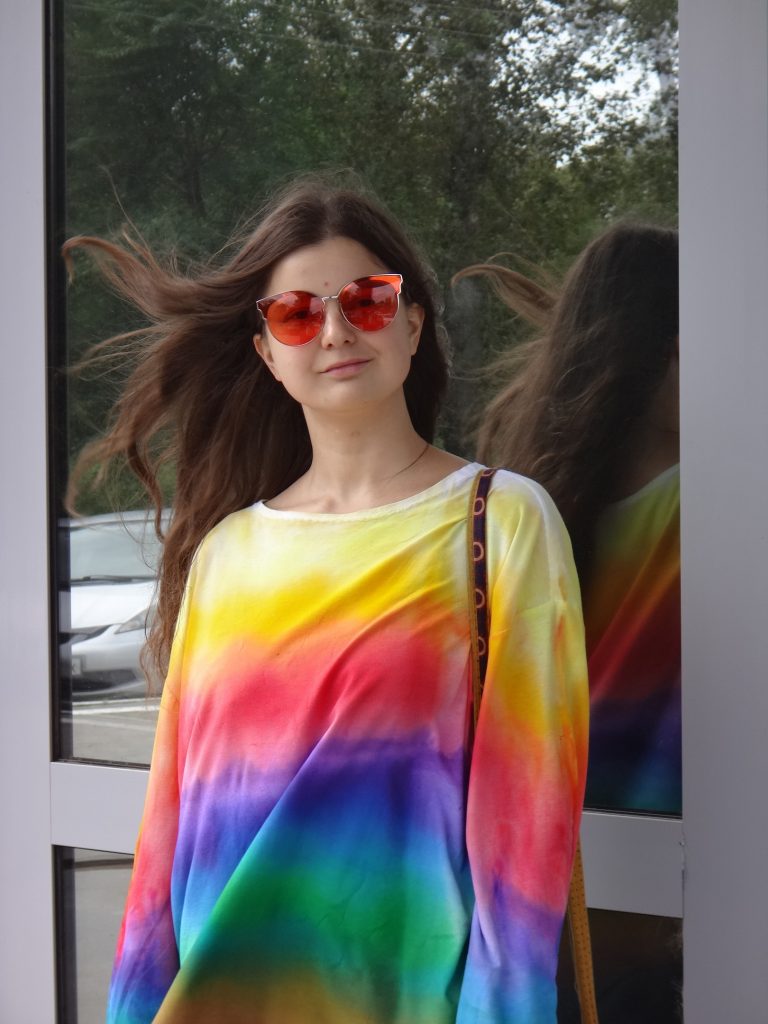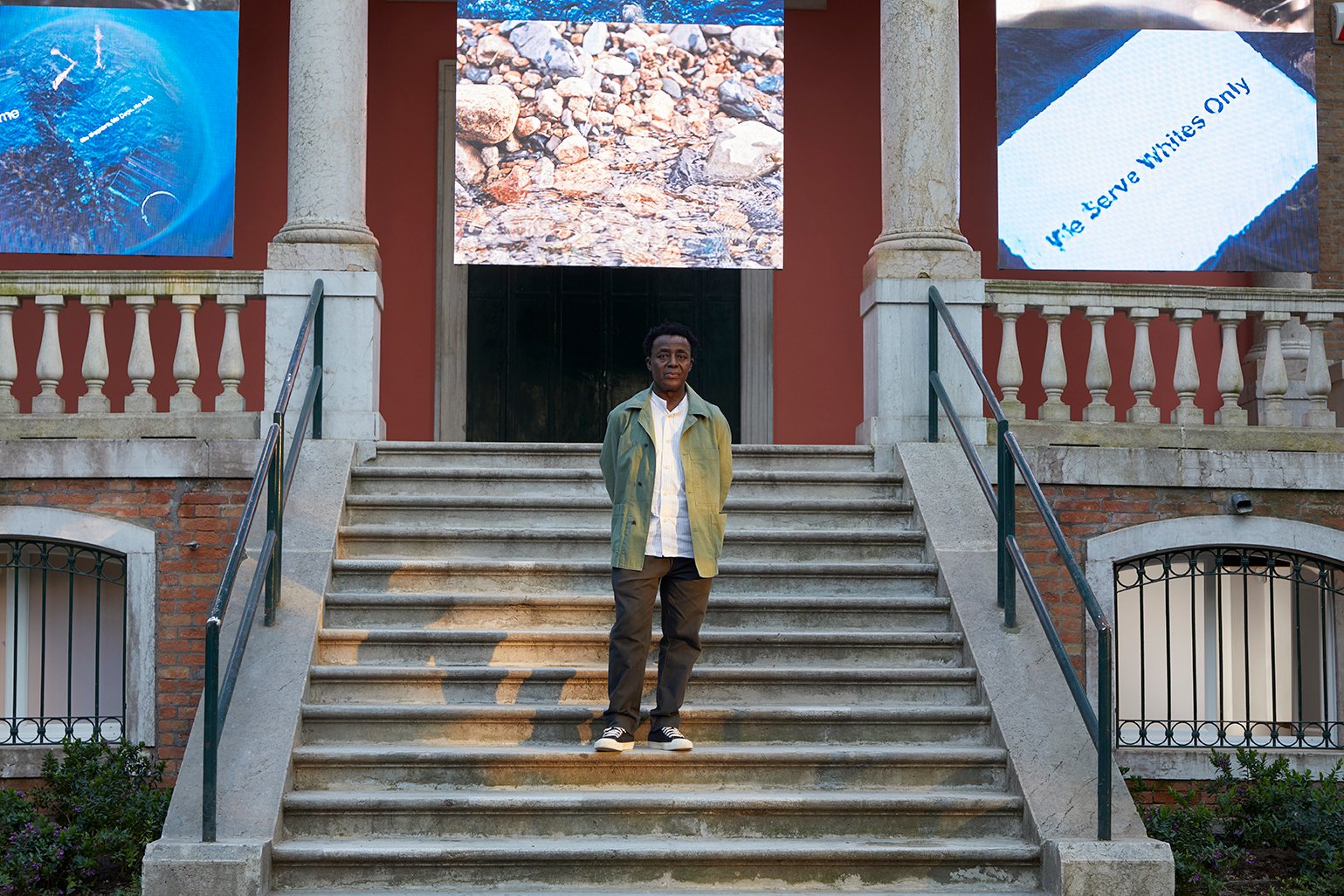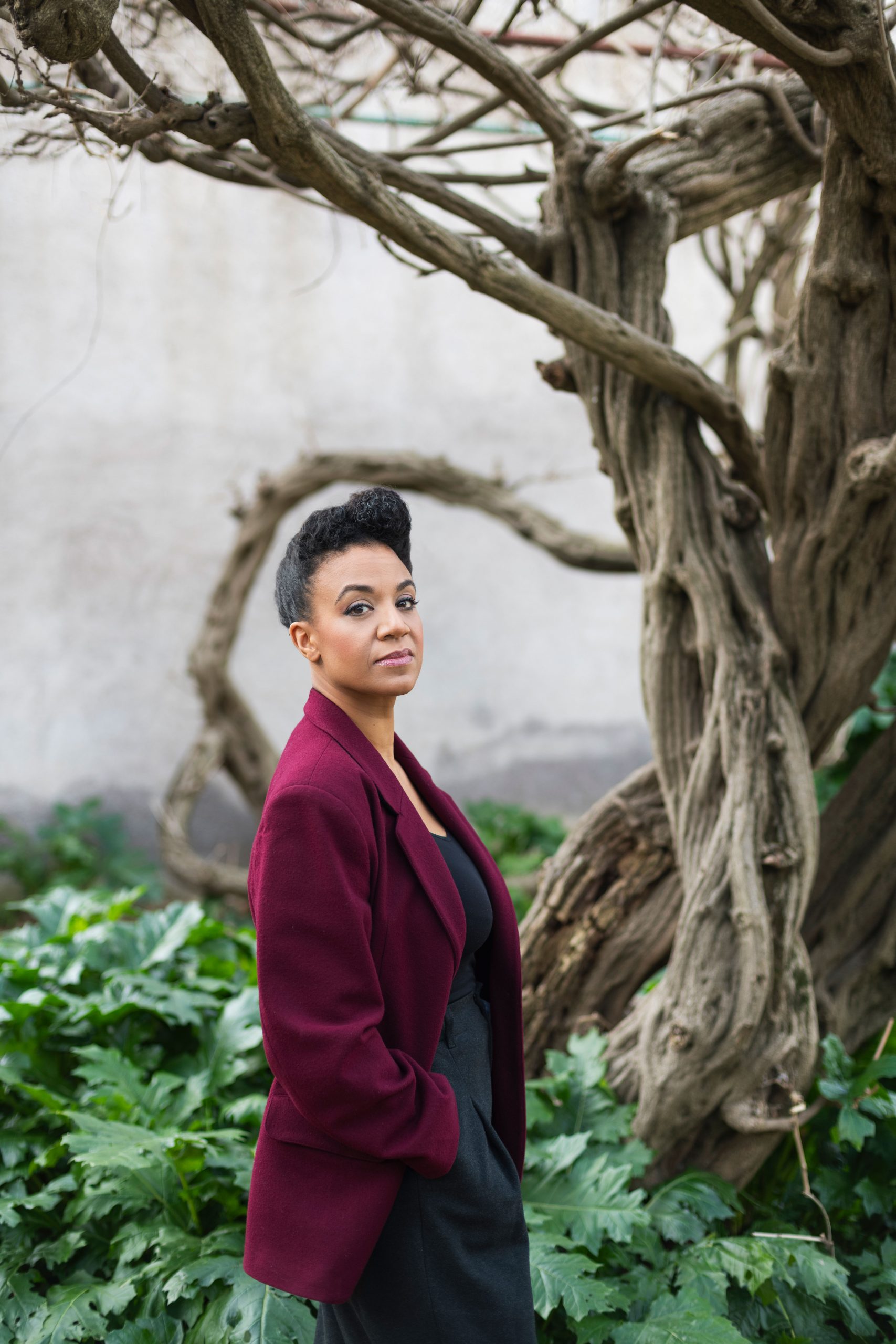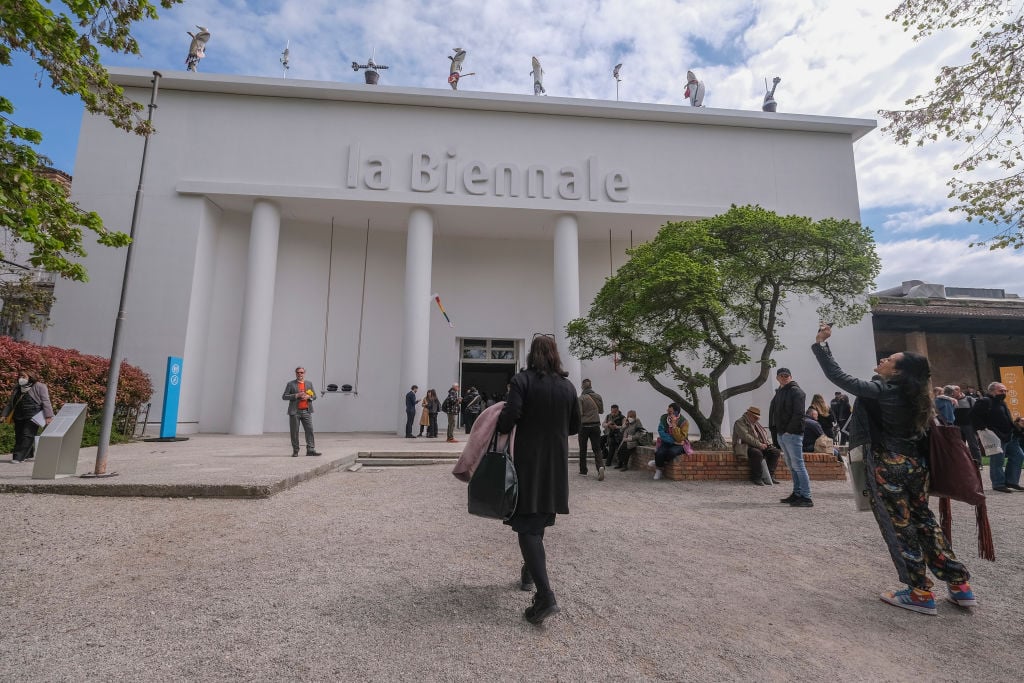Feminist artist and LGBTQ+ activist Yulia Tsvetkova is on trial in Russia, facing charges of disseminating pornography based on her artwork featuring the naked female body.
The 27-year-old, who was detained in November 2019 and remained under house arrest in Komsomolsk-on-Amur until March 16, faces up to six years behind bars if found guilty of illegally producing and distributing pornographic materials on the internet.
“Her persecution fits into the context of a government campaign of the ‘protection of traditional values,’ used, among other things, to secure the regime’s hold on political power in Russia,” writes the Coalition to Free the Kremlin’s Political Prisoners. “Art materials in Tsvetkova’s case cannot be recognized as pornographic. They do not incite sexual desire, are not naturalistic, and have a specific artistic and ideological value.”
Tsvetkova, who had an exhibition of her work open in St. Petersburg over the weekend, maintains her innocence. She has already been found guilty of “propaganda of non-traditional sexual relations among minors” in December 2019 and July 2020, and fined 50,000 rubles ($780) both times.
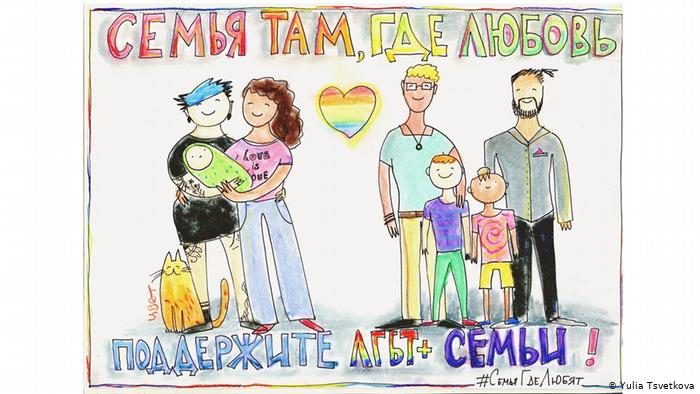
Yulia Tsvetkova, Family is where love is. Courtesy of the artist.
Her drawing Family is where love is, of two same-sex couples with children, was found to be in violation of Russia’s 2013 “gay propaganda” law that is purportedly “protecting children from information advocating for a denial of traditional family values.” The government had cancelled a youth festival organized by Tsvetkova on the same grounds in March 2019.
The pornography case against Tsvetkova stems from her roles as founder of the Vagina Monologues, a feminist body-positive online community that is “dedicated to removing stigma from the vagina” through images and texts celebrating “the beauty, strength and uniqueness of the female body,” according to the group’s description.
“Yulia has always been against pornography,” Tsvetkova’s mother, Anna Khodyreva, told the Associated Press. “Feminists are against pornography because it’s exploitation of women’s bodies.”
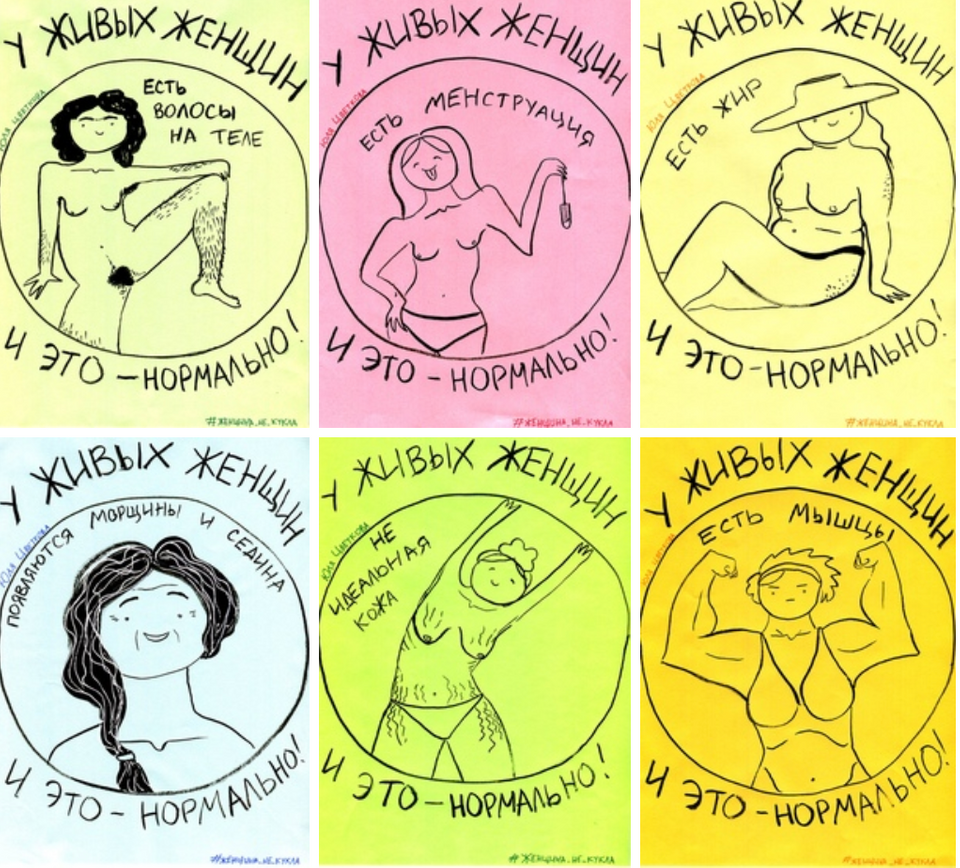
Yulia Tsvetkova’s drawings, with captions like “Real women have body fat and it’s normal” and “Real women have wrinkles and grey hair and it’s normal.” Courtesy of the artist.
Amnesty International has criticized the Russian state for moving forward with Tsvetkova’s prosecution and for barring access to the proceedings for both the public and the press, a decision made on the grounds that “pornographic materials” will be examined during the trial.
A group of human rights activists also wrote an open letter to the Russian prosecutor general in March, calling on him to drop the charges against Tsvetkova.
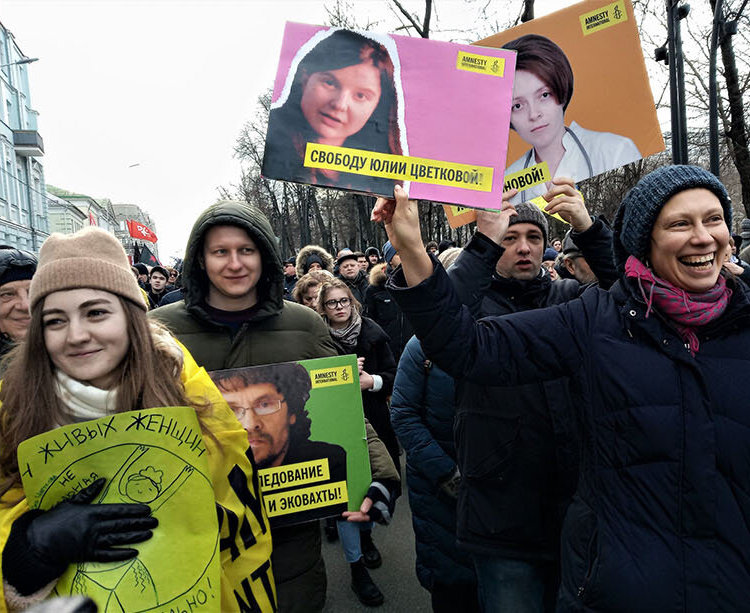
A solidarity march calling for the release of Russian feminist artist Yulia Tsvetkova. Photo courtesy of Free Yulia Tsvetkova.
“Artwork depicting female anatomy with a clearly outlined goal of celebrating the beauty of female anatomy, is not and should not be considered pornographic under Russian law,” the letter argues. “The prosecution is also a violation of the right to freedom of expression, which includes artistic expression, as protected under international law and explicitly under treaties to which Russia is a party.”
Tsvetkova’s case has also inspired a Change.org petition with over 250,000 signatures, a petition from 150 artists who have exhibited in Russia, and solidarity walks held in Berlin, London, and Russia. Last June, 40 protestors were arrested at demonstrations in Moscow and St. Petersburg on Tsvetkova’s behalf.
The Stedelijk Museum in Amsterdam acquired a selection of the artist’s work in November. Tsvetkova was also named the 2020 Index on Censorship Freedom of Expression Awards Arts Fellow.
“For the last year, I’ve been hearing that my work means nothing. That women do not need rights, that body positivity is a pornography that corrupts children and ruins their lives, that I should go to jail,” Tsvetkova said in her acceptance speech. “The award pretty much reminds me that… there are still people who believe that [what I do] is important.”
Follow Artnet News on Facebook:
Want to stay ahead of the art world? Subscribe to our newsletter to get the breaking news, eye-opening interviews, and incisive critical takes that drive the conversation forward.
